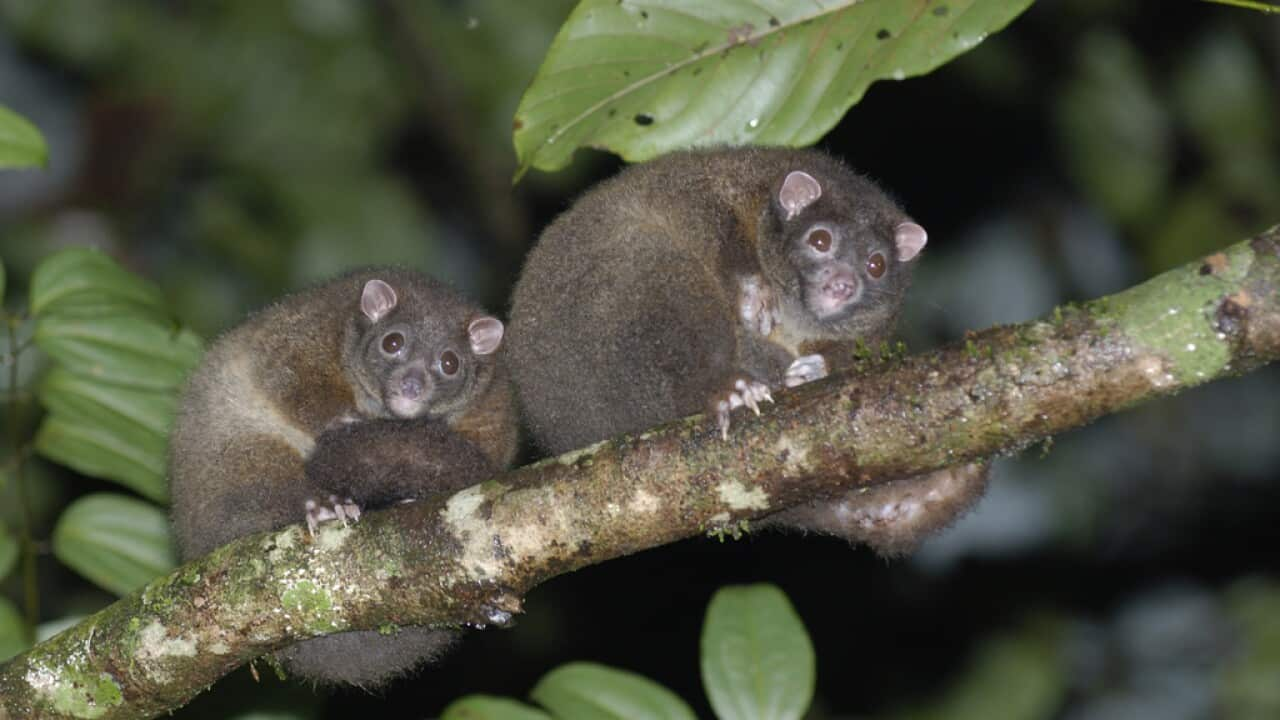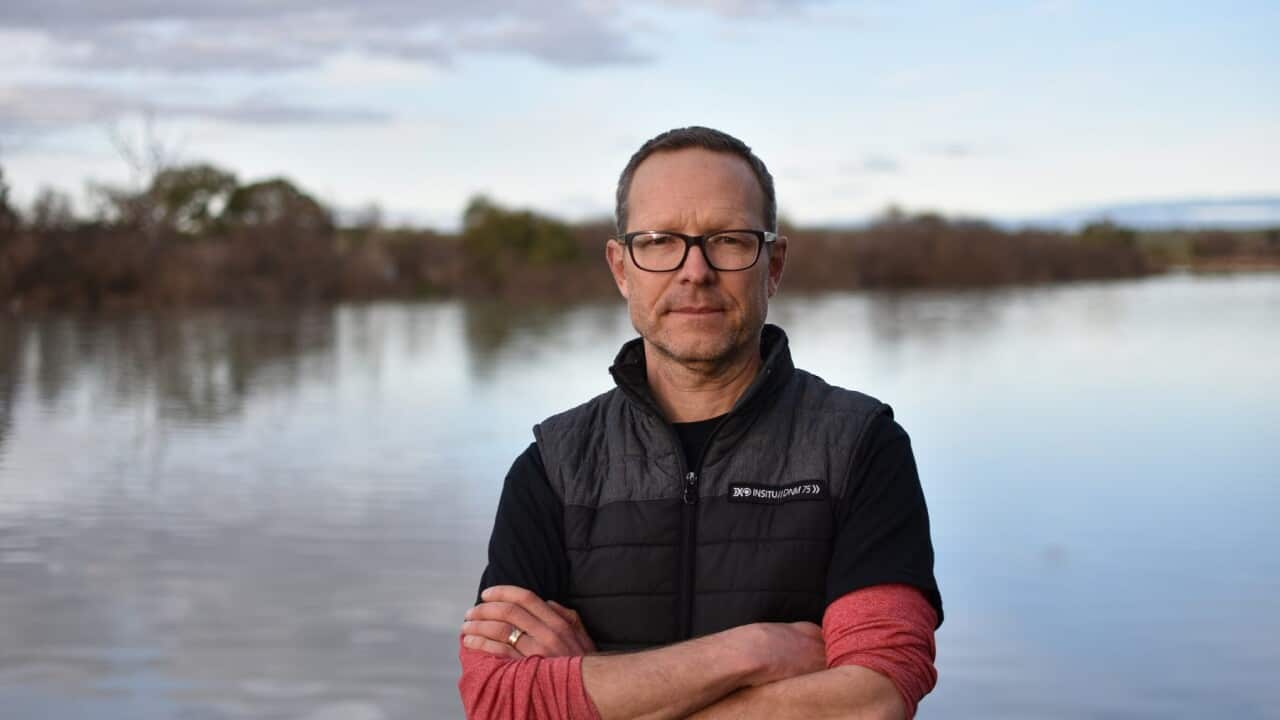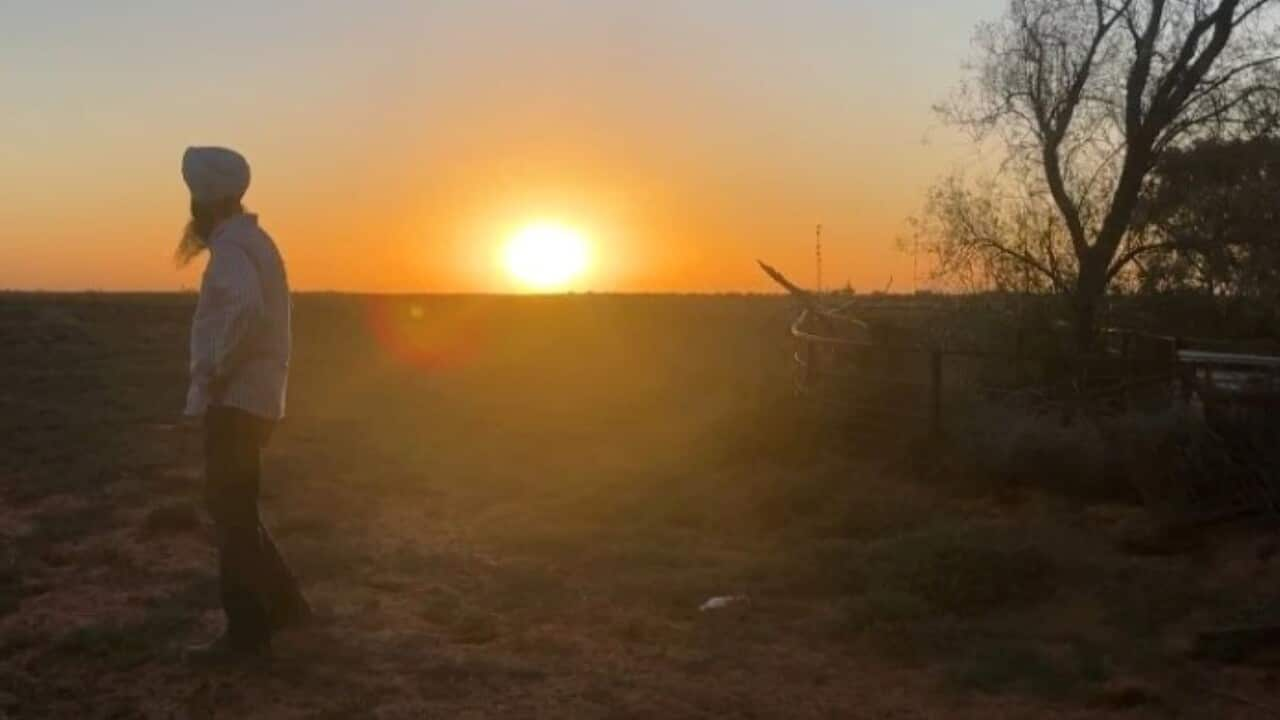Listen to Australian and world news, and follow trending topics with SBS News Podcasts.
TRANSCRIPT:
The mighty mountain ash is the tallest flowering plant on the planet.
The eucalypt, which is native to Victoria and Tasmania and can reach over one-hundred metres high ... equivalent to a twenty-five storey building.
It also stores more carbon per hectare than South America's famed Amazon rain forest.
Professor Michael-Shawn Fletcher is a Wiradjuri man from central New South Wales, who has long been studying this land, which has provided shelter and sustenance to Traditional Owners for tens of thousands of years.
"These things have inspired awe and reverence for a long time for Aboriginal people and colonisers, it's a fact. So, caring for those areas means protecting them. But what it does mean, and this is the critical part people loose in the nuance; is you need to care for the areas around those places."
Researchers who have analysed over 50 years of data believe for every degree the planet warms, nine per cent of these trees could be lost.
"So, the climate is getting warmer and we found that by 2080, we predict that 25 per cent of these trees will die and so that's 100-thousand tonnes essentially that may be re-emitted to the atmosphere."
That's Raphael Trouve, a senior research fellow from The University of Melbourne.
And he has found that as these mountain ash trees decompose, they actually emit carbon dioxide into the atmosphere, with a projected impact equivalent to driving a million cars 10-thousand kilometres per year for 75 years.
Over the years, the forests have been ravaged by logging, bushfires and decreasing rainfall.
That's caused Victoria to lose an estimated 77 per cent of its old growth forests in recent decades.
But instead of planting more trees, some researchers believe the solution could lie in removing them.
It's a process known as "ecological thinning" ... where trees are selectively removed to reduce competition for resources.
"There hasn't been so much research on thinning in Australia. It's something that's been done a lot internationally. There's lot's of studies that show thinning the forest make the trees more resilient."
While it may seem counter-intuitive, Trouve believes:
"It's like if you have a veggie patch in your garden and you plant your rows of lettuce. Then, as they grow you might want to thin them at some point, otherwise they get too crowded, have stunted growth and they aren't very healthy. For the trees, it's the same, if you remove some of the trees then, the remaining trees will have access to more resources and be more resilient to drought."
"I think the notion of thinning in these forests is ridiculous, absolutely ridiculous. Naturally, the forests will thin itself. So, there is no need for humans to come in and mess the forest up even further by driving massive machines around in it, taking out lots of trees, which will compact the soils, kill most of the under-storey vegetation and in those forests, actually make them more prone to more fire."
Professor David Lindenmayer has researched Australia's forests for more than forty years.
He's been calling on Victoria to establish a Great Forest National Park for over a decade.
"The analysis that we've done shows that Melbourne ranks bottom of the league table in terms of access to national parks of any capital city around Australia. It's 10 times worse than Sydney. So, Melbourne is no longer the most livable city in Australia, in fact it's the least livable major city in Australia because it has the least access to national parks."
The Victorian government has ruled out this prospect.
Instead, issuing a statement to SBS saying it has invested 7.7 million-dollars to sow more seeds in areas of Mountain Ash and Alpine forest devastated by the 2019/20 fires with ongoing monitoring to guide their recovery.
The trees also filter and feed rainfall into catchments, which provide a critical source of water to more than five million Melburnians. Unlike other major cities in Australia, Victoria's water supply is intimately tied to these forests.
They also support some of Australia's most endangered animals, including the Leadbeater's Possum.
For Professor Fletcher, plants and people have always been connected ... and Care for Country, deep-rooted.
"We didn't create this problem. This is not our problem. We care and we love our Country, so we will fix it, we will try and fix it, we will do everything we can. But you can't just lump the problem in our lap and say there you go and dust your hands. It's build capacity for people that you have suppressed and oppressed for two and a half centuries. Build the capacity, do it meaningfully and empower Aboriginal people to take over. We are more than capable on our terms, but if you want us to play on your terms build us up and provide us the opportunity."













